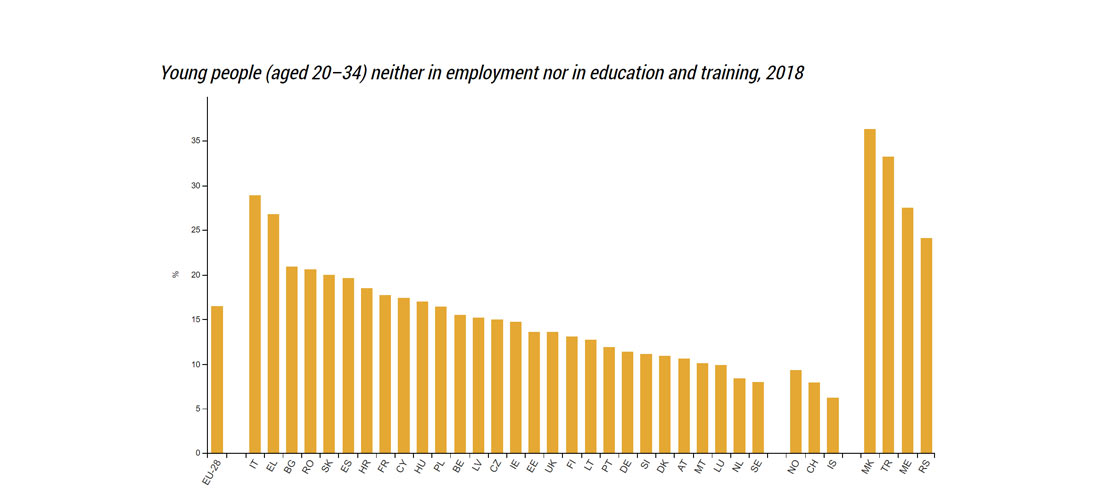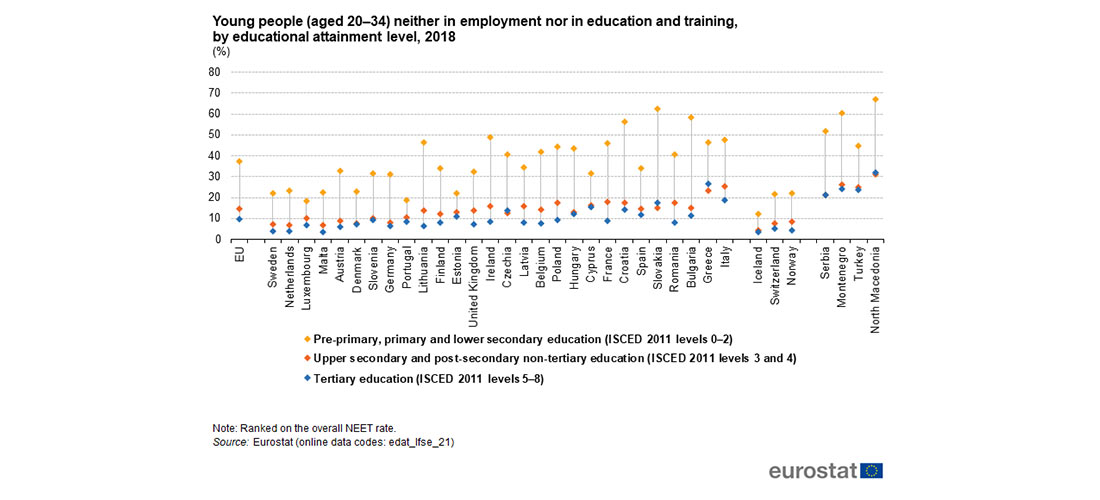Being a young person who is not in education, employment or training (NEET) can lead to marginalization or disengagement from society, and it can have a long term negative effects on life chances. Eurostat reported that in 2018, 16.5 % of the 20-34 olds in the EU were neither in employment nor in education and training. Across the EU Member States there was a wide variation in NEET rates. For people aged 20–34, the lowest rates were below 10.0 % in Luxembourg, the Netherlands and Sweden; this was also the case in Iceland, Switzerland and Norway. There were 10 Member States that recorded NEET rates above the EU average of 16.5 %. Among these, Croatia, Bulgaria, Romania and Spain, the four target countries of the RAISE project, were in the top seven.

In 2018, the share of young people in the EU who were NEETs was the lowest in cities (15.1 %) and the highest in rural areas (18.3 %), with towns and suburbs reporting a NEET rate that was between these two extremes (17.3 %).
High youth unemployment in Bulgaria, Croatia, Romania and Spain is particularly persistent in rural areas which lack a job market and are facing depopulation and lack of development. All 4 project countries recorded rural NEET rate above the EU average, with big difference in rates between cities and rural areas in Croatia (9.50) and Romania (15.50), and extremely big gap in percentage points recorded in Bulgaria (21.0 points).

In order to bridge the gap between urban and rural NEET rates, we have created this unique project. RAISE Youth Overall Objective is to contribute to providing decent and productive work for youth through social innovation in rural areas of Bulgaria, Croatia, Romania and Spain.
RAISE Youth Specific Objective is to pilot and promote an innovative RAISE Model of (self)employment, for youth NEETs with primary focus on age 25-29 based on sustainable agri-business in 4 rural regions of EU with high unemployment rates and depopulation. The RAISE approach is based on the premise that in rural areas NEETs have no job market to be integrated into, but have a potential for pooling resources in socially innovative ways for (self)employment and entrepreneurial approach. By developing a social innovation, new jobs will be created and filled, using principles of sustainable development in agribusiness, especially rural tourism which is a multiplier of employment and economic development. Although the project addresses primarily rural NEETs aged 25-29 giving special consideration to inactive women and Roma, it will also include younger rural NEETs (18-24) and urban NEETs, in order to pilot an innovative model of sustainable employment in the European Union.

